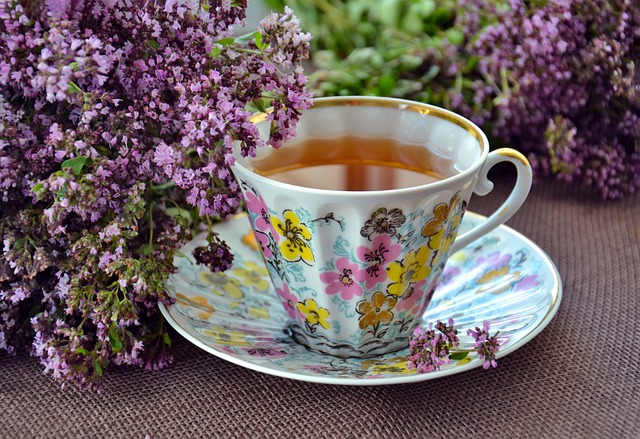Intermittent fasting has become a popular trend in recent years for its numerous health benefits, including weight loss, improved insulin sensitivity, and reduced inflammation. However, fasting for extended periods can be challenging for some people, as it requires strong willpower and discipline. Luckily, there are several herbal teas that can aid in the fasting process and make it easier for individuals to stick to their fasting routine. In this article, we’ll explore the benefits of herbal teas for intermittent fasting and highlight seven of the most helpful teas.
| Read more about Intermittent Fasting What is Intermittent Fasting and its Benefits? Choose the Best Intermittent Fasting Schedule for Your Lifestyle How to do Intermittent Fasting for Weight Loss? |
How can herbal teas help in intermittent fasting?
Herbal teas have several properties that can aid in intermittent fasting. For instance:
- They can suppress appetite: During fasting, people often experience hunger pangs that can make it hard to stick to their fasting routine. Herbal teas can help suppress appetite, making it easier to manage hunger pangs.
- They can boost metabolism: Some herbal teas contain compounds that can boost metabolism, which can help burn fat and support weight loss during fasting.
- They can hydrate the body: It’s essential to stay hydrated during fasting, and drinking herbal teas can help you achieve this. Herbal teas contain water and can help replenish the body’s fluids and electrolytes lost during fasting.
7 Herbal teas and more to choose from:
- Green tea: Green tea contains catechins, which are natural antioxidants that can help boost metabolism and burn fat. Drinking green tea during fasting can help improve weight loss results and reduce inflammation.
- Oolong tea: Oolong tea is a traditional Chinese tea that’s partially fermented, giving it a unique flavor and aroma. It contains antioxidants and caffeine, which can help boost metabolism, suppress appetite, and aid in weight loss during fasting. Oolong tea has also been shown to improve insulin sensitivity and reduce the risk of heart disease.
- Rooibos tea: Rooibos tea is caffeine-free and rich in antioxidants. It can help suppress appetite and reduce inflammation, making it an excellent option for individuals who want to fast without experiencing jitters or caffeine-related side effects.
- Ginger tea: Ginger tea can help boost metabolism, aid digestion, and reduce inflammation. It can also help suppress appetite, making it an excellent choice for those who struggle with hunger pangs during fasting.
- Peppermint tea: Peppermint tea is caffeine-free and can help suppress appetite and aid digestion. It also has a soothing effect on the body and can help reduce stress and anxiety levels during fasting.
- Chamomile tea: Chamomile tea is caffeine-free and has a calming effect on the body. It can help reduce stress levels, aid digestion, and promote better sleep during fasting.
- Hibiscus tea: Hibiscus tea is rich in antioxidants and can help lower blood pressure and reduce inflammation. It also has a tangy flavor that can help suppress appetite and make fasting more enjoyable.
Recommendations
While herbal teas can be a beneficial addition to your intermittent fasting routine, there are some things to be cautious about when consuming them. Here are a few recommendations to keep in mind:
- Avoid adding sweeteners: Adding sugar, honey, or other sweeteners to your tea can break your fast and spike your insulin levels. Stick to drinking your tea plain or with a squeeze of lemon or lime.
- Be mindful of caffeine: Some herbal teas, such as green and black tea, contain caffeine, which can affect your fasting goals. If you’re sensitive to caffeine or trying to avoid it, opt for caffeine-free herbal teas, such as rooibos, chamomile, or peppermint.
- Stay hydrated: While herbal teas can be a great source of hydration during fasting, it’s essential to drink enough water as well. Make sure to drink plenty of water throughout the day to prevent dehydration.
- Listen to your body: If you experience any adverse effects from drinking herbal teas during fasting, such as nausea, dizziness, or stomach upset, stop consuming them and consult with your healthcare provider.
- Be aware of potential interactions: Some herbal teas can interact with medications or supplements, so if you’re taking any medications or supplements, consult with your healthcare provider before incorporating herbal teas into your diet.
Overall, incorporating herbal teas into your intermittent fasting routine can be a great way to support your fasting goals and promote overall health and wellness. They can help suppress appetite, boost metabolism, and hydrate the body, making it easier to stick to your fasting routine. Green tea, black tea, rooibos tea, ginger tea, peppermint tea, chamomile tea, and hibiscus tea are some of the most helpful teas for intermittent fasting. Just be mindful of the recommendations above and listen to your body to ensure you’re getting the most out of your fasting and tea-drinking experience.


Leave a Reply